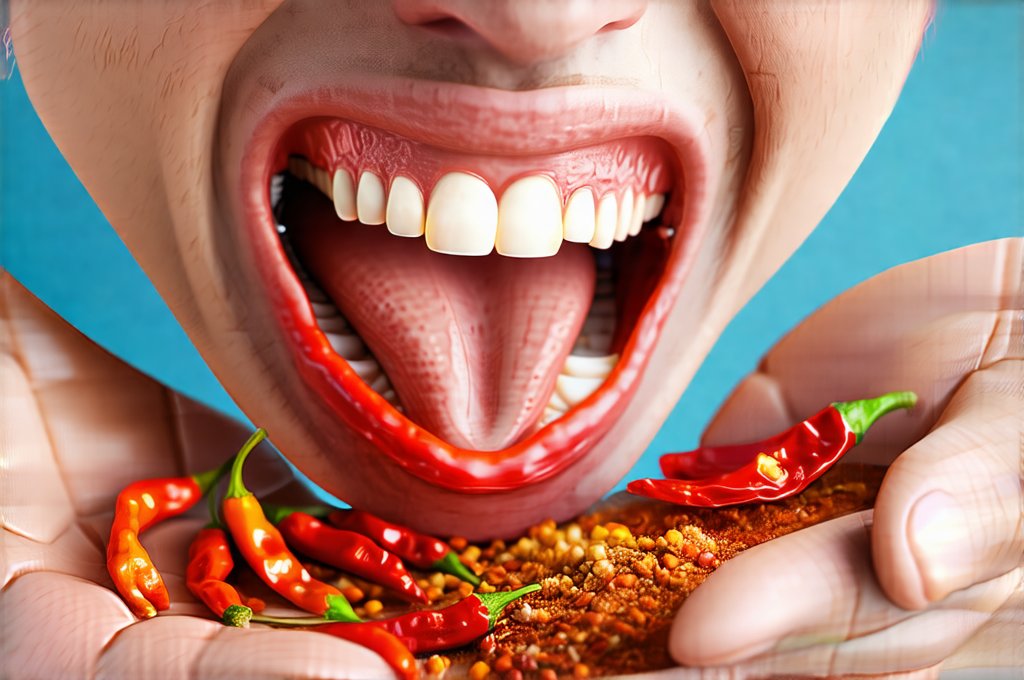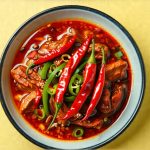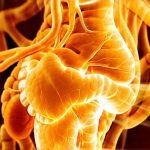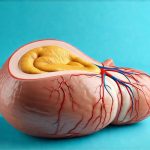The sensation of a racing heart after indulging in spicy food is surprisingly common, yet often perplexing. Many individuals experience this phenomenon—a rapid heartbeat, sometimes accompanied by palpitations or even a sense of anxiety—shortly after enjoying their favorite fiery dishes. While usually harmless, it can be unsettling and prompt questions about the underlying mechanisms at play and whether it signals something more serious. Understanding the intricate interplay between gastrointestinal health, the nervous system, and our physiological response to capsaicin, the chemical compound responsible for the heat in chili peppers, is key to demystifying this experience. This article aims to explore the connection between Gastroesophageal Reflux Disease (GERD), spicy food consumption, and subsequent rapid heartbeat, providing a comprehensive overview of potential causes, contributing factors, and ways to manage these symptoms effectively.
It’s important to state upfront that experiencing a temporary increase in heart rate after eating spicy foods is not necessarily indicative of an underlying health problem for the majority of people. However, if the rapid heartbeat is severe, persistent, or accompanied by other concerning symptoms like chest pain, shortness of breath, dizziness, or fainting, seeking medical attention is crucial to rule out any serious cardiovascular issues. This article will focus on understanding why this occurs in generally healthy individuals with or without diagnosed GERD and how to navigate these experiences responsibly. It’s about recognizing the body’s response and making informed choices regarding diet and lifestyle. Are you eating too many trigger foods at once?
The Link Between Spicy Foods, GERD, and Heart Rate
Gastroesophageal Reflux Disease (GERD) fundamentally involves stomach acid flowing back up into the esophagus, leading to heartburn and other discomforting symptoms. While seemingly unrelated to heart rate, the connection lies in the body’s physiological response to both the irritation caused by reflux and the stimulation from capsaicin. Spicy foods can exacerbate GERD symptoms for many individuals due to their ability to relax the lower esophageal sphincter (LES), the muscular valve that prevents stomach acid from backing up. When the LES is relaxed, it’s easier for acid to rise, triggering a cascade of events that can ultimately affect heart rate.
The vagus nerve plays a central role in this process. This cranial nerve has extensive connections between the gut and the heart. Stimulation in the digestive system – whether from stomach acid reflux or the intense sensation of capsaicin hitting your mouth – can directly influence vagal tone, which impacts heart rate variability. In some cases, this leads to an increased heart rate as the body attempts to cope with perceived stress or discomfort. Furthermore, the pain and inflammation associated with GERD itself can activate the sympathetic nervous system (the ‘fight-or-flight’ response), also contributing to a faster heartbeat.
It’s crucial to understand that capsaicin isn’t just a sensory experience; it’s a physiological one. The body interprets the burning sensation as a form of mild stress, triggering similar responses to those experienced during physical exertion or emotional distress. This can include an increase in heart rate, sweating, and even adrenaline release. Individuals with pre-existing GERD may be more susceptible to these effects because their digestive systems are already compromised, making them more sensitive to irritants like spicy foods. The combination of increased acid reflux and capsaicin stimulation creates a powerful physiological response that can result in a noticeable rapid heartbeat. Is feeling tired after eating a red flag?
How Capsaicin Affects the Cardiovascular System
Capsaicin isn’t merely about burning your mouth; it has demonstrable effects on the cardiovascular system, even beyond its impact on GERD-related heart rate increases. When you consume spicy foods containing capsaicin, it interacts with receptors called TRPV1 (transient receptor potential vanilloid 1) found throughout the body – not just in the mouth but also in the gastrointestinal tract and even blood vessels. Activation of these receptors triggers a release of substance P, a neuropeptide involved in pain transmission, but also influencing vascular function.
This activation can lead to several cardiovascular effects: – Vasodilation: Capsaicin promotes widening of blood vessels, potentially causing a temporary drop in blood pressure initially. – Increased Heart Rate: As the body attempts to compensate for the initial vasodilation and perceived stress, heart rate often increases. – Adrenaline Release: The sensation of “heat” can stimulate the adrenal glands to release adrenaline (epinephrine), further boosting heart rate and blood pressure.
These effects are generally mild and transient in healthy individuals. However, people with pre-existing cardiovascular conditions or sensitivities may experience more pronounced symptoms. It’s also worth noting that tolerance to capsaicin can develop over time; regular consumption of spicy foods can reduce the intensity of these cardiovascular responses as the body adapts. The extent to which capsaicin impacts an individual’s heart rate varies widely depending on factors like their overall health, sensitivity level, and the amount of spice consumed.
Understanding Vagal Tone & Heart Rate Variability
Vagal tone refers to the activity of the vagus nerve, which plays a critical role in regulating numerous bodily functions including heart rate, digestion, and breathing. Higher vagal tone is generally associated with better cardiovascular health, improved stress resilience, and emotional regulation. When the vagus nerve is stimulated, it slows down heart rate and promotes relaxation. Conversely, low vagal tone can contribute to increased heart rate, anxiety, and a reduced ability to cope with stress.
Spicy foods, as discussed, can significantly influence vagal tone through both direct stimulation of TRPV1 receptors in the gut and indirectly via GERD-related inflammation. A sudden increase in vagal activity – sometimes triggered by digestive discomfort – can paradoxically lead to a temporary rapid heartbeat as the body attempts to restore balance. Heart rate variability (HRV) measures the variation in time between heartbeats. Higher HRV generally indicates better cardiovascular health and adaptability, while lower HRV is linked to increased risk of heart disease and stress.
Individuals with GERD often exhibit reduced HRV due to chronic inflammation and dysregulation of the autonomic nervous system. Spicy foods can further exacerbate this issue by triggering acid reflux and increasing vagal nerve stimulation. Improving vagal tone through lifestyle interventions – such as deep breathing exercises, meditation, yoga, and regular exercise – may help mitigate some of these effects and promote a more balanced cardiovascular response to spicy food consumption. How to reduce bloating after eating can also influence this.
Dietary Considerations for GERD & Spicy Food Tolerance
Managing GERD is crucial for minimizing the risk of rapid heartbeat after eating spicy foods. This involves identifying trigger foods beyond just spice levels. Common culprits include: – Fatty Foods: These can relax the LES, increasing acid reflux. – Caffeine & Alcohol: Both can also contribute to LES relaxation. – Chocolate & Mint: Surprisingly, these can exacerbate GERD symptoms for some individuals. – Acidic Fruits & Vegetables: Citrus fruits and tomatoes may worsen heartburn.
When it comes to spicy foods specifically, portion control is key. Starting with small amounts and gradually increasing tolerance over time can help minimize discomfort. Eating spicy food with other foods – rather than on an empty stomach – can also reduce irritation. Consider pairing spicy dishes with alkaline-rich foods like bananas or melons, which may help neutralize stomach acid. Beyond specific foods, eating habits matter. Avoid lying down immediately after meals and elevate the head of your bed if you experience nighttime reflux. A gerd diet is often helpful.
Lifestyle Changes to Support Cardiovascular Health & Digestive Comfort
Lifestyle modifications can play a significant role in managing both GERD and improving cardiovascular health, ultimately reducing the likelihood of rapid heartbeat after spicy food consumption. Regular exercise – at least 30 minutes of moderate-intensity activity most days of the week – strengthens the cardiovascular system and improves vagal tone. Stress management techniques like meditation, yoga, or deep breathing exercises can help regulate the autonomic nervous system and reduce sympathetic nervous system activation.
Maintaining a healthy weight is also important, as excess weight puts added pressure on the abdomen, increasing the risk of acid reflux. Consider incorporating probiotics into your diet to support gut health; a balanced microbiome can improve digestion and potentially reduce GERD symptoms. Staying adequately hydrated helps with digestive function and overall health. Finally, if you suspect spicy foods consistently trigger significant heart rate increases or other concerning symptoms, consult with a healthcare professional to rule out any underlying medical conditions and develop a personalized management plan. They may suggest monitoring your heart rate during episodes or performing further diagnostic testing if necessary. Are spicy foods always a problem? It depends on the individual! Understanding your body’s response is key, and sometimes it may be beneficial to explore whether you are eating too many trigger foods. You should also consider if your gut can heal while eating trigger foods – this is a complex question with no easy answer. Finally, remember that feeling tired after eating could be a sign of underlying issues.


















